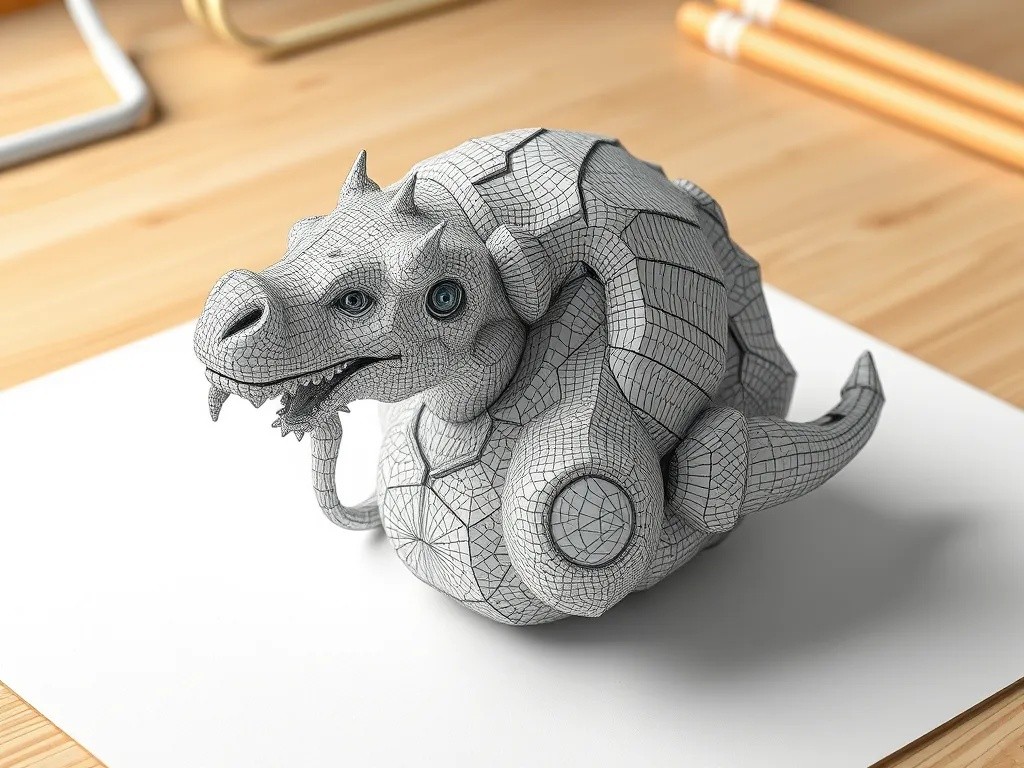In recent years, there has been a significant advancement in the field of Artificial Intelligence (AI) and Augmented Reality (AR). These technologies have become increasingly popular and have the potential to enhance virtual experiences in various fields such as gaming, education, healthcare, and...
New AI App Turns Your Drawings into Real 3D Objects

The world of digital creation has witnessed a groundbreaking innovation that bridges the gap between traditional sketching and advanced 3D modeling. A revolutionary artificial intelligence application now enables users to transform their simple hand-drawn sketches into sophisticated three-dimensional objects, democratizing 3D design like never before.
The Technology Behind the Magic
This cutting-edge AI system utilizes advanced machine learning algorithms trained on millions of drawings and their corresponding 3D representations. The technology employs neural networks that can interpret line drawings, understand depth cues, and predict the three-dimensional structure that the artist intended to convey.
How the AI Interprets Your Drawings
The application processes sketches through several sophisticated stages:
- Edge detection algorithms identify the primary contours and shapes
- Depth estimation models predict the spatial relationships between different elements
- Surface reconstruction techniques generate smooth, realistic 3D surfaces
- Texture and material prediction adds realistic finishes to the final model
Transforming Creative Industries
This innovative technology is reshaping multiple creative sectors, from product design to entertainment. Designers can now rapidly prototype ideas without extensive 3D modeling expertise, while artists can see their 2D concepts come to life in three dimensions within minutes.
Applications Across Different Fields
The versatility of this AI tool extends across numerous professional domains:
- Product Design: Rapid prototyping of consumer goods and industrial components
- Architecture: Quick visualization of building concepts and interior elements
- Gaming: Fast creation of game assets and environmental objects
- Education: Interactive learning tools for geometry and spatial reasoning
- Art and Sculpture: Digital sculpting starting from traditional sketches

User-Friendly Interface and Accessibility
One of the most remarkable aspects of this technology is its accessibility. Users don't need years of training in complex 3D software or expensive hardware. A simple tablet or smartphone with a stylus is sufficient to begin creating professional-quality 3D models.
Getting Started with the App
The process is remarkably straightforward:
- Download the application on your preferred device
- Create a simple sketch using basic lines and shapes
- Let the AI process your drawing for 30-60 seconds
- Review and refine the generated 3D model
- Export your creation in various 3D formats
Limitations and Future Developments
While this technology represents a significant leap forward, it's important to acknowledge current limitations. The AI performs best with clear, well-defined sketches and may struggle with highly abstract or ambiguous drawings. Complex scenes with multiple overlapping objects can also present challenges for accurate interpretation.
What's Next for AI-Powered 3D Creation
Developers are continuously improving the system's capabilities. Future updates promise enhanced accuracy for complex drawings, support for colored sketches, and integration with virtual reality platforms for immersive 3D modeling experiences.
Impact on the Creative Community
This technological advancement is democratizing 3D creation by removing traditional barriers to entry. Artists, designers, and hobbyists who previously found 3D modeling intimidating can now participate in three-dimensional creation with confidence and ease.
The application represents more than just a technological achievement; it's a bridge between traditional artistic expression and digital innovation. By maintaining the intuitive nature of drawing while providing sophisticated 3D output, this AI tool is opening new creative possibilities for millions of users worldwide.
As this technology continues to evolve, we can expect even more seamless integration between human creativity and artificial intelligence, ushering in a new era of accessible digital design that empowers everyone to bring their imaginative concepts into three-dimensional reality.



